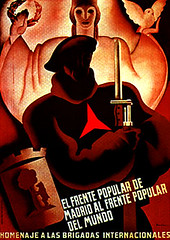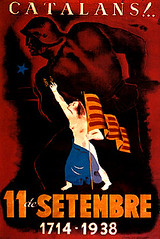Donkey
A magazine should be the reflection of its time, and one that ceases to reflect this should come to an end. The moment we live in is archaistic, conservative and irresponsible, for the war is separating culture from life and driving it back on itself, the impetus given by Left Wing politics is for the time exhausted, and however much we should like to have a paper that was revolutionary in opinions or original in technique, it is impossible to do so when there is a certain suspension of judgement and creative activity. The aim of Horizon is to give to writers a place to express themselves, and to readers the best writing we can obtain. . . . [A]nd so Horizon will have political articles, though it will never imitate those journals, in which, like pantomime donkeys, the political front legs kick and entangle the literary hind ones.
-- Cyril Connolly, "Comment," Horizon (Vol. 1, No. 1), January 1940

